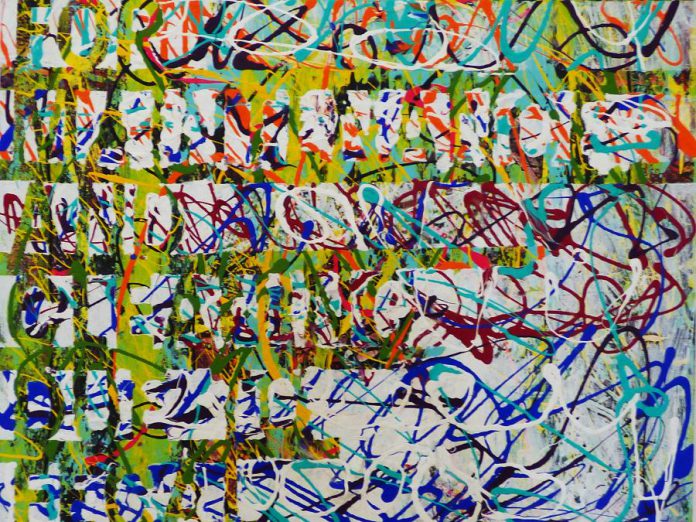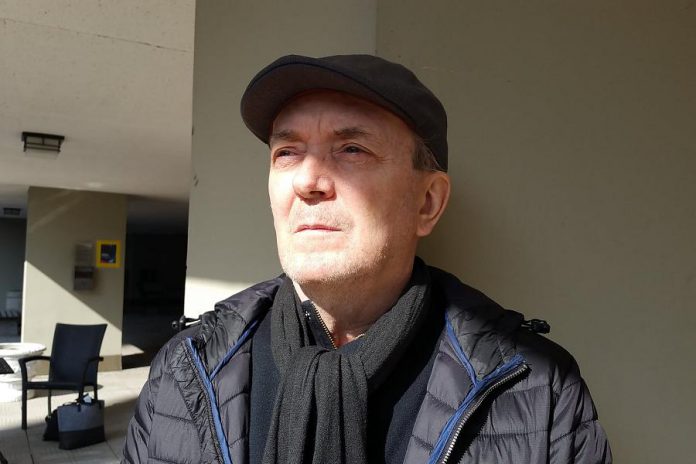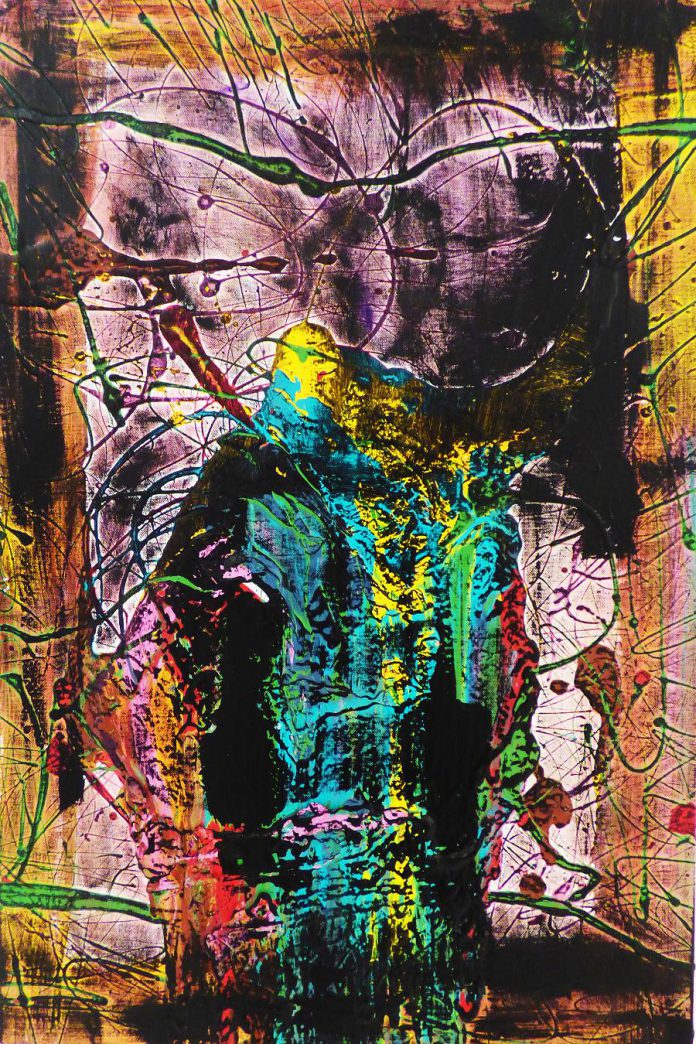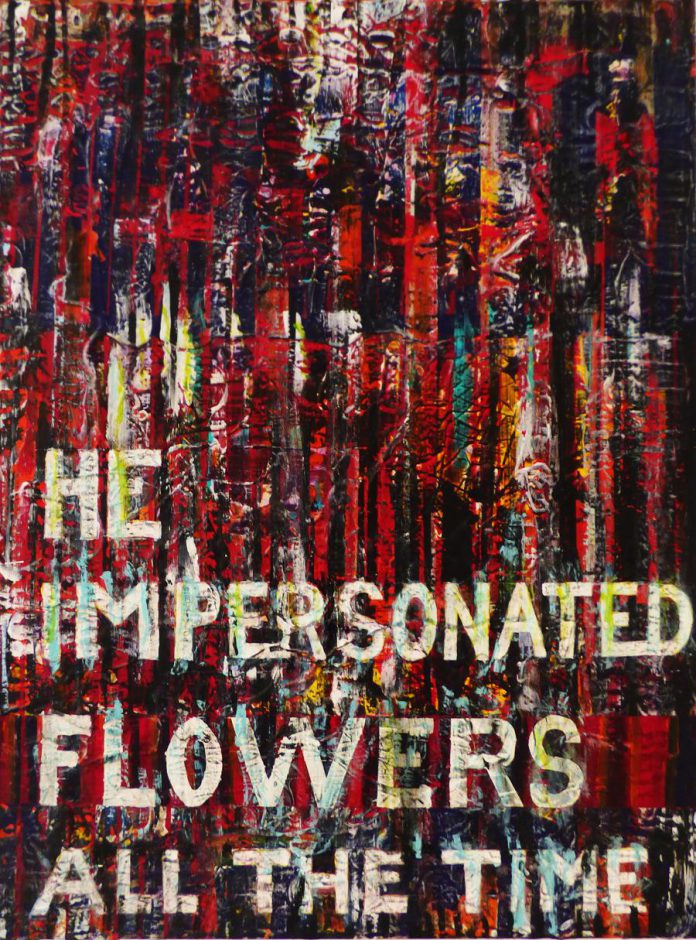
Peterborough native David Bateman is an internationally recognized artist whose work spans across multiple disciplines. He is one of Canada’s most highly regarded performance artists, a prolific visual artist, and a published poet, playwright, and short fiction writer.
His debut novel Dr. Sad (University of Calgary Press) was released in July of 2020. Bateman also holds a PhD in English literature with a specialization in creative writing from the University of Calgary and has taught at numerous post-secondary institutions across Canada.
While Bateman’s impressive body of work has taken him across the country and around the world, the now Toronto-based artist always finds a way to return to his hometown of Peterborough-Nogojiwanong.
“I was born in St. Joseph’s Hospital surrounded by a bunch of nuns, which is always nice,” Bateman says with a chuckle. “I lived in Peterborough, in the same house in the Brookdale area, pretty much full-time until I was about 20.”
“Peterborough was a very different place for me in the ’60s and ’70s than it is now, but there was always a great art scene,” he recalls. “I left Peterborough for school and different jobs and ended up being more rooted in Toronto. But I’ve always come back — I’ve always had a very strong connection to this place.”
Bateman’s most recent homecoming, a 10-painting solo exhibition called Abstract Impersonations, currently hangs at Atelier Ludmila Gallery, on the second floor of Commons Building at 129-1/2 Hunter Street West in downtown Peterborough, until May 30.

Influenced by abstract expressionism and lyrical expressionism, the paintings are quintessentially Bateman-esque in their use of colour, vigorous and expressive technique, and text — often passages from Bateman’s own acclaimed poetry.
“I don’t know that I’ve consciously cultivated a style,” says Bateman of his work. “Certainly, my writing has been described as a kind of Euphuism, which is a lush style filled with different kinds of figurative language, like alliteration, metaphor, and simile. John Lyly is a well-known example of that style.”
“Euphuism is often associated with a queer centre, even though at that time queer and homosexual didn’t exist in those terms,” he adds. “Some of those impulses come through in the paintings. There’s a kind of lyrical content.”
Discussing processes in his artist’s statement for Abstract Impersonations, Bateman references a Helen Frakenthaler quotation, which reads, “I’d rather risk an ugly surprise than rely on things I know I can do.”
The quotation calls to mind a work by theorist Giles Deleuze called ‘Francis Bacon: The Logic of Sensation’, in which Deleuze, among other things, analyzes how chance becomes pictorial. Before beginning a work, Bacon was known to randomly mark his blank canvases with “chance strokes”, which would then determine how the painting would take form. This practice, according to Deleuze, allowed Bacon to “defy the terrible cliché” insofar as it allowed the painter to manipulate chance — to utilize an accident.
Bateman approaches much of his work in a similar fashion. In particular, ‘The Saints’, a series of paintings in Abstract Impersonations, embody his often-serendipitous method.
“I just put the canvases on the floor and splattered paint,” he explains. “And I thought that would be a base coat, but then I got this image — this abstract information. I didn’t know if I loved them or hated them, but I just started brushing and wiping paint onto them.”

“Later, a friend saw them, as I describe in my artist’s statement, and said that she saw saints in them — she had been reading a book about saints — so that’s what I called them,” he says.
Discipline notwithstanding, all of Bateman’s work offers viewers and audiences a level of accessibility that can only be described as generosity. The artist creates profound works, exploring serious topics such as gender, queerness, class and privilege, and HIV, with self-reflexivity and a playful sense of humour.
“My father, who passed away suddenly when I was 20, is certainly where my sense of humour comes from,” he recalls. “He fought in the second World War, and he would always make very dark, yet very funny jokes.”
Bateman’s playful comedic style is certainly apparent in Abstract Impersonations. One painting, inspired by a found haiku at West Edmonton Mall Waterpark featured in Bateman’s 2007 poetry collection Impersonating Flowers (Frontenac Press), is particularly hilarious. It’s called ‘Area Closed for Maintenance And Cleaning Due To Fecal Mishap’.
“It’s like what Oscar Wilde said about The Importance of Being Earnest: ‘It has a philosophy that we should treat all the trivial things in life seriously, and all the serious things of life with sincere and studied triviality.’ I love that idea of play between the serious and non-serious.”
“I take my work seriously by not taking it seriously,” he adds. “I don’t like to take it so seriously where I’m going to create a whole bunch of really complex discourse. People are free to interpret my work in any way they like. Once I’ve done it, once I put it out into the world, it’s not mine anymore.”

Abstract Impersonations will be exhibited at Ateilier Ludmila Gallery until Sunday, May 30th. To book a private COVID-safe viewing by appointment, email gallery@atelierludmila.com.
A virtual gallery tour of Abstract Impersonations is also available on the Ateilier Ludmila website at atelierludmila.com/david-bateman-abstract-impersonations/.
To purchase a painting online, send the title of the artwork to shop@atelierludmila.com, and gallery personnel will respond immediately with payment options.



























